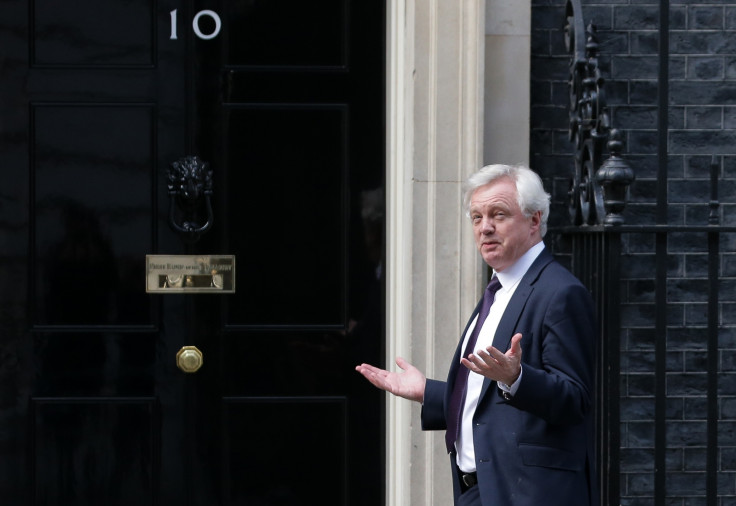Does David Davis even know what the British government wants from the Brexit talks?
Talks between Britain and the EU have reached deadlock over "divorce bill."

With just 18 months until Britain is set to exit the EU, the man at the very top of the negotiations has seemingly admitted that the government doesn't know what it wants from the talks.
The Brexit Secretary David Davis was speaking to one of Germany's largest newspapers, Die Welt, about the current state of affairs between Britain and Brussels.
Davis explained that there was progress being made in the talks, but that the EU had imposed too tight a mandate on their chief negotiator, Michel Barnier.
"We'd like him at least to prepare for the future relationship. Some people say progress is slow. By EU standards this negotiation has been lightening fast," Davis said to Die Welt.
One sticking point that has delayed progress to the next round of talks has been the ongoing debate surrounding the "divorce bill".
The bill is what the EU says that the UK should pay as a share of money that's already been committed to various projects. There is no official bill yet decided and any amount will be a matter for negotiations.
Numerous figures have been mentioned in recent months, ranging from as little as €1bn to €100bn. Last month, Davis was adamant the prospect of the UK paying €50bn to the EU was "nonsense".
But when Die Welt asked about the figure he skirted around the question, stating that "it's a negotiation."
But one notable aspect from his answer was that he appeared to suggest that the British government wasn't sure of what it wanted out of the crucial Brexit talks.
In his answer about the divorce bill, Davis said: "It's a negotiation and we're going through the process at the moment of assessing, do the technical work on the commitments. We'll then make a political judgement on what we think is realistic and sensible."
This statement, a year and a half after the EU referendum suggests that the government still hasn't worked out what it thinks is a "realistic and sensible" route for exiting the EU, and with negotiation time fast running out, the pressure is on Whitehall to prevent a cliffedge scenario.
Speaking to Repubblica in Italy, Davis said that the possibility of Britain walking away from the table without a deal had only a "remote chance."
It comes on the same day that the former cabinet member, Own Paterson said that no deal was "inevitable."
Prime Minister Theresa May today (19 October) begins a two-day crunch Brussels summit with European leaders when the progress of Brexit talks will be assessed.
At the conclusion of the fifth round of talks between Britain and the EU, both sides agreed that progress had been made, but Michel Barnier, said that the ongoing debate over the divorce bill was "deeply disturbing."
Despite Britain voting to leave the EU in June 2016, little progress has been made in negotiations, with Brussels refusing to move onto trade until issues such as the Irish border, citizens' rights and the divorce settlement are finalised.
The activation of Article 50 in March this year means that there is just a year and a half left until Britain is set to leave in March 2019, a timescale that Theresa May has been adamant about sticking to.






















